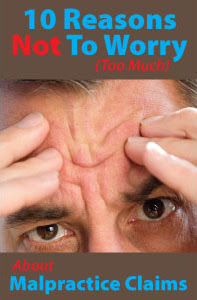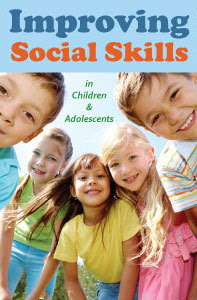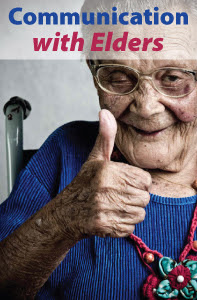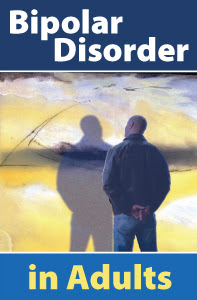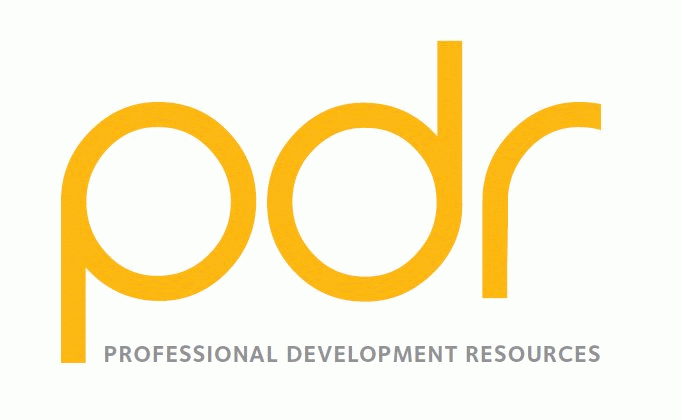By Cecelia Johnson @ Recognition Works
 If you’re struggling with a drug or alcohol addiction, you might feel like there’s no one out there who truly understands what you’re going through. You may even worry that no one would want to understand. But what if I told you there are hundreds of people who don’t just grasp the concept of addiction, but truly relate to the challenges it brings?
If you’re struggling with a drug or alcohol addiction, you might feel like there’s no one out there who truly understands what you’re going through. You may even worry that no one would want to understand. But what if I told you there are hundreds of people who don’t just grasp the concept of addiction, but truly relate to the challenges it brings?
According to the addiction treatment graduates I spoke to, rehabilitation is just the place to find that understanding. Here are the ways they told me that the people and experiences in treatment helped change their lives for the better.
The people in treatment DON’T judge …
Addiction comes with a serious stigma. Some don’t understand that it’s a disease, and therefore believe people choose to give in to it. Often, this leads to harsh judgment of substance abusers, even those making genuine efforts to get clean.
Zach admitted that although he knew he’d be meeting others like him in treatment, he still wasn’t sure they’d accept him.
“When I got there, I felt empty and alone,” he confessed. “I was ashamed of myself, I felt guilty, and I didn’t think anyone else was going through what I was going through. I had a wife and kids, other people I was responsible for. I thought I’d go there and have people judging me.”
However, when he arrived for treatment at the Treehouse in Texas, he had a much different experience than expected: he wasn’t just welcomed, he was truly embraced.
“I had just gotten out of my intake with the nurse, and she introduced me to someone. He said, ‘Hey, friend! What are you here for?’ And I told him. He said, ‘Don’t be ashamed — we’re all addicts here!’” Zach recalled.
It may be hard to believe — especially if you’ve faced harsh criticism at home — but treatment isn’t about judging. It’s about healing.
… and they DO understand.
Think you’ve got the worst possible story? Convinced that no one on this planet has made as many mistakes as you, or at the very least as many BIG mistakes as you? Think again.
Wendy, who now works at the rehab center where she found lasting sobriety, said that the patients she meets frequently have much in common.
“When I take clients back to [the treatment facility] after meetings, they often say, ‘Wow, someone shared a story today that sounded so much like what I’ve been through. I can’t believe it!’ Everyone thinks they’re out there alone, but when you’re in recovery, you meet a lot of people who know what you’re going through,” she explained.
Sally, who recently celebrated one year of sobriety, agreed that leaning on your peers is a crucial part of the recovery process.
“It’s support in all different ways, whether it’s someone listening to you about things you’ve never gotten off your chest, or support after a rough day and you can just laugh together,” she said. “You have to have it all when you’re going through it. If nobody cared, we’d all be screwed.”
You feel the positive effects even after you’ve left
Going home following treatment can be tough for anyone, but John said that his experience in treatment made him eager, not anxious, to get his life back on track.
“When I went home, I didn’t feel used. I wanted to make the people who invested in me with their hearts, not just their program, proud,” he remembered.
John explained that rehab taught him to accept himself as he was, flaws and all. The support he gained gave him courage, even on his tough days.
“They gave me a part of their heart through the process,” he said. “I felt more willing to keep going when I was outside knowing that it’s OK to not be OK outside of treatment.”
If you’re struggling with an addiction, hope is out there, and there are countless people who have experienced the same issues that you’re facing — you just need to be willing to reach out and find the path to healing that you deserve.
Recognition Works connects award recipients with companies that want to contribute to their achievements through donations, gifts, and sponsorships.
Related Online Continuing Education (CE) Courses:
The Mindfulness Workbook for Addiction is a 5-hour test only course based on the book “The Mindfulness Workbook for Addiction: A Guide to Coping with the Grief, Stress and Anger that Trigger Addictive Behaviors” (2012, 232 pages). This workbook presents a comprehensive approach to working with clients in recovery from addictive behaviors and is unique in that it addresses the underlying loss that clients have experienced that may be fueling addictive behaviors. Counseling skills from the field of mindfulness therapy, cognitive-behavioral therapy, acceptance and commitment therapy, and dialectical behavioral therapy are outlined in a clear and easy-to-implement style. Healthy strategies for coping with grief, depression, anxiety, and anger are provided along with ways to improve interpersonal relationships. Course #50-14 | 30 posttest questions
Medical Marijuana is a 3-hour online continuing education (CE) course that presents a summary of the current literature on the various medical, legal, educational, occupational, and ethical aspects of marijuana. In spite of the fact that nearly half of the states in this country have enacted legislation legalizing marijuana in some fashion, the reality is that neither the intended “medical” benefits of marijuana nor its known (and as yet unknown) adverse effects have been adequately examined using controlled studies. Conclusive literature remains sparse, and opinion remains divided and contentious. This course will address the major questions about marijuana that are as yet unanswered by scientific evidence. What are the known medical uses for marijuana? What is the legal status of marijuana in state and federal legislation? What are the interactions with mental health conditions like anxiety, depression, and suicidal behavior? Is marijuana addictive? Is marijuana a gateway drug? What are the adverse consequences of marijuana use? Do state medical marijuana laws increase the use of marijuana and other drugs? The course will conclude with a list of implications for healthcare and mental health practitioners. Course #30-86 | 2016 | 55 pages | 24 posttest questions
Prescription Drug Abuse is a 3-hour online continuing education (CE) course that examines the effects of the rise in prescription drug abuse, as well as treatment options for abusers. Pharmaceuticals like OxyContin®, Adderall®, and Xanax® are some of the most commonly abused prescription drugs. For some prescription drug addicts, medication was originally taken as prescribed – until they started developing a tolerance for it. For others, members of their peer group began to abuse prescription drugs because they are easily accessible and relatively inexpensive on the street. Prescription drug abuse also affects those who don’t use – through increased costs and the inconveniences of increased security at pharmacies. Treatment is comprised of a series of steps, including detoxification, inpatient/outpatient treatment, and maintenance. In some cases, patients must be closely monitored because of the potential for withdrawal effects. Once treatment is completed, there are various options for maintaining sobriety. Laws are being tightened, and some medications have become difficult to find due to the increased rate of prescription drug abuse. Course #30-61 | 2012 | 30 pages | 20 posttest questions
Codependency: Causes, Consequences and Cures is a 3-hour online continuing education (CE) course that offers strategies for therapists to use in working with codependent clients. The author offers in-depth and in-person strategies for therapists to use in working with clients who present with the characteristic behavior patterns of codependency. Clients are usually unaware of the underlying codependency that is often responsible for the symptoms they’re suffering. Starting with emphasis on the delicate process of building a caring therapeutic relationship with these clients, the author guides readers through the early shame-inducing parenting styles that inhibit the development of healthy self-esteem. Through personal stories and case studies, the author goes on to describe healing interventions that can help clients identify dysfunctional patterns in relationships, start leading balanced lives and connecting with others on a new and meaningful level. Evaluative questionnaires, journaling assignments and other exercises are included to help you help your clients to overcome codependency. The rewards of successfully treating codependency are great for client and clinician alike. Even though the propensity for relapse always exists, it’s unlikely that a person who has made significant progress towards overcoming this disease will lose the gains they’ve made. Course #30-83 | 2015 | 40 pages | 21 posttest questions
Professional Development Resources is a nonprofit educational corporation 501(c)(3) organized in 1992. Our purpose is to provide high quality online continuing education (CE) courses on topics relevant to members of the healthcare professions we serve. We strive to keep our carbon footprint small by being completely paperless, allowing telecommuting, recycling, using energy-efficient lights and powering off electronics when not in use. We provide online CE courses to allow our colleagues to earn credits from the comfort of their own home or office so we can all be as green as possible (no paper, no shipping or handling, no travel expenses, etc.). Sustainability isn’t part of our work – it’s a guiding influence for all of our work.
We are approved to offer continuing education by the American Psychological Association (APA); the National Board of Certified Counselors (NBCC); the Association of Social Work Boards (ASWB); the American Occupational Therapy Association (AOTA); the American Speech-Language-Hearing Association (ASHA); the Commission on Dietetic Registration (CDR); the Alabama State Board of Occupational Therapy; the Florida Boards of Social Work, Mental Health Counseling and Marriage and Family Therapy, Psychology & School Psychology, Dietetics & Nutrition, Speech-Language Pathology and Audiology, and Occupational Therapy Practice; the Ohio Counselor, Social Worker & MFT Board and Board of Speech-Language Pathology and Audiology; the South Carolina Board of Professional Counselors & MFTs; the Texas Board of Examiners of Marriage & Family Therapists and State Board of Social Worker Examiners; and are CE Broker compliant (all courses are reported within one week of completion).
Like this:
Like Loading...
 Mrs. Stuttgart has brought in her husband for an evaluation by the speech-language pathologist. Mrs. Stuttgart is concerned that her husband is in the early stages of dementia. He does not seem connected to what is going on around him, she says, and makes strange replies when she speaks to him. Assessment reveals that Mr. Stuttgart has a severe hearing loss. The speech-language pathologist refers the couple to an audiologist, but Mrs. Stuttgart declines. “He always said he didn’t want to spend money on hearing aids. He hates them. I know he won’t wear them even if we buy them.” In light of the potential for safety concerns, depression and the adverse cognitive effects due to auditory deprivation, what is the ethical thing for the speech-language pathologist to do? What obstacles need to be overcome?
Mrs. Stuttgart has brought in her husband for an evaluation by the speech-language pathologist. Mrs. Stuttgart is concerned that her husband is in the early stages of dementia. He does not seem connected to what is going on around him, she says, and makes strange replies when she speaks to him. Assessment reveals that Mr. Stuttgart has a severe hearing loss. The speech-language pathologist refers the couple to an audiologist, but Mrs. Stuttgart declines. “He always said he didn’t want to spend money on hearing aids. He hates them. I know he won’t wear them even if we buy them.” In light of the potential for safety concerns, depression and the adverse cognitive effects due to auditory deprivation, what is the ethical thing for the speech-language pathologist to do? What obstacles need to be overcome? Ethics for Speech-Language Pathology and Audiology is a 2-hour online continuing education (CE/CEU) course that presents an overview of ethical issues that arise in speech-language pathology and audiology practice. Speech-language pathologists (SLPs) and audiologists encounter ethical issues across the spectrum of practice settings, from pediatric treatment to care of elders in skilled nursing facilities. This course will discuss barriers to ethical thinking, evidence-based ethics, economics, discrimination, abuse, bullying in the workplace, boundaries, confidentiality, social media, and infection control. Course #21-04 | 2015 | 30 pages | 15 posttest questions
Ethics for Speech-Language Pathology and Audiology is a 2-hour online continuing education (CE/CEU) course that presents an overview of ethical issues that arise in speech-language pathology and audiology practice. Speech-language pathologists (SLPs) and audiologists encounter ethical issues across the spectrum of practice settings, from pediatric treatment to care of elders in skilled nursing facilities. This course will discuss barriers to ethical thinking, evidence-based ethics, economics, discrimination, abuse, bullying in the workplace, boundaries, confidentiality, social media, and infection control. Course #21-04 | 2015 | 30 pages | 15 posttest questions





 If you’re struggling with a drug or alcohol addiction, you might feel like there’s no one out there who truly understands what you’re going through. You may even worry that no one would want to understand. But what if I told you there are hundreds of people who don’t just grasp the concept of addiction, but truly relate to the challenges it brings?
If you’re struggling with a drug or alcohol addiction, you might feel like there’s no one out there who truly understands what you’re going through. You may even worry that no one would want to understand. But what if I told you there are hundreds of people who don’t just grasp the concept of addiction, but truly relate to the challenges it brings?




















